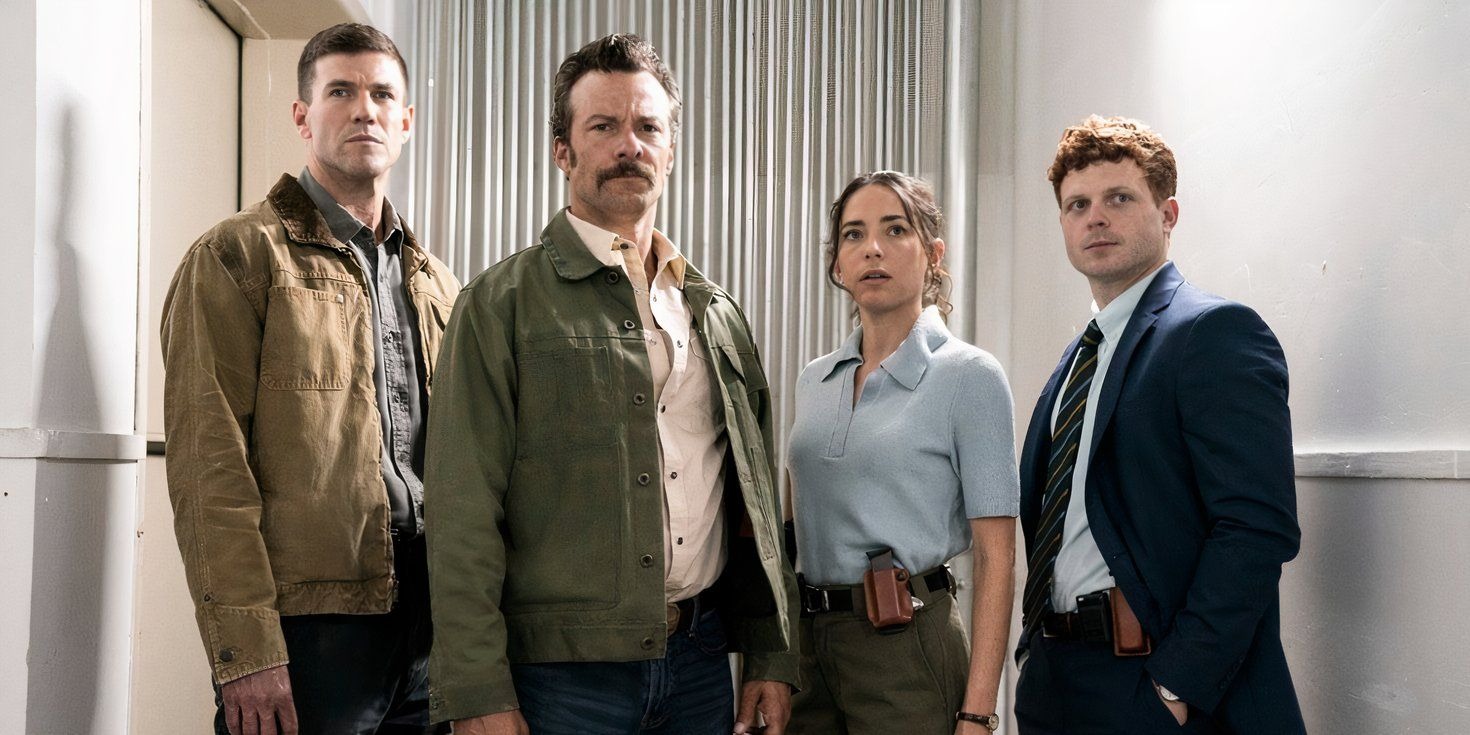
Introduction: The Fall That Changed It All
NCIS has been a television staple for over two decades, quietly holding the crown as one of the most-watched scripted dramas in America. But even legends need a refresh. This fall, NCIS made a change — and not just any change. It was big. Bold. Risky. And it might just be the spark that reignites the franchise’s fire.
So, what exactly happened? And why is everyone talking about it like it’s the franchise’s second coming?
Let’s dive deep into what this major fall shift was, how it’s shaking up the NCIS universe, and why it might be the best decision the show has made in years.
A Franchise at a Crossroads
The Decline in Ratings and Relevance
Over the past few years, NCIS started to feel… predictable. Familiar. Like that worn-out hoodie you can’t stop wearing even though it’s lost its shape. Sure, it was comfortable. But the edge? Gone.
Ratings weren’t plummeting, but they weren’t rising either. Newer audiences leaned toward fresher, edgier crime shows. It was clear: NCIS had to evolve or risk fading into syndication history.
The Game-Changing Move — Enter NCIS: Origins
Flashback to a Young Gibbs
The most buzz-worthy move this fall? NCIS: Origins — a prequel series centered on a young Leroy Jethro Gibbs, portrayed by Austin Stowell.
Yes, you read that right. We’re finally getting a glimpse into the early days of Gibbs’ career. The must-know story behind the legend, exploring how he became the stoic, rule-writing icon fans grew to love.
Back to the Beginning – And Why It Works
Going back in time allows the franchise to explore rich, untapped storytelling. We see Gibbs fresh, raw, and a bit unpolished. It’s not just a nostalgia play — it’s a full-circle moment that adds depth to the entire NCIS mythos.
Why This Shift Feels So Right
Legacy Meets Fresh Talent
With Mark Harmon stepping back but narrating the new series, the show bridges old and new. It honors the character’s legacy without forcing Harmon to carry the series on his back again.
Austin Stowell Nails the Role
Stowell doesn’t just imitate Gibbs — he embodies him. His performance adds new layers while still echoing the intensity Harmon brought to the role.
It’s not easy to fill such iconic shoes, but Stowell brings just the right mix of grit and vulnerability.

Storytelling That Finally Dares to Take Risks
Grittier, Darker, and Emotionally Charged
NCIS: Origins has a different tone — moodier lighting, emotionally heavy backstories, and morally gray decisions. It dares to dig into the trauma that shaped Gibbs, something the original show only skimmed.
A Serialized Approach That Actually Works
Gone are the strict case-of-the-week structures. Instead, Origins leans into long-form storytelling — think cliffhangers, layered arcs, and slower-burn mysteries. And fans are eating it up.
Revisiting Fan-Favorite Characters Through New Lenses
Mike Franks Returns (Kind Of)
Longtime fans were thrilled when Muse Watson’s Mike Franks reappeared — not just as a ghost or in flashbacks, but as a key player in young Gibbs’ world.
It’s more than a cameo. It’s a mentoring arc with real emotional heft.
Mary Jo Is the Unexpected Breakout Star
The introduction of Mary Jo, a new and complex character in Gibbs’ early life, has surprised even the most skeptical viewers. She’s layered, smart, and tough as nails — think Ziva-level impact.
How NCIS Benefits from a Broader Universe
The Marvel-Style Blueprint
CBS is finally leaning into what Marvel did best: world-building. With NCIS: Origins, NCIS: Sydney, and the core NCIS team, the franchise now has multiple lanes — each with unique vibes but interconnected DNA.
Spinoffs That Complement, Not Compete
Instead of replacing the main series, these new entries enhance the universe. You can watch them standalone or as part of the bigger picture. That’s smart storytelling.
Fan Reception Has Been Surprisingly Unified
Diehards and Newcomers Are Both On Board
Longtime fans feared the worst. But many now admit the show has new life. Meanwhile, younger audiences, drawn by the origin story vibe and cinematic quality, are tuning in for the first time.
Social Media Is Buzzing — In a Good Way
From Reddit threads to TikTok edits of young Gibbs, the fandom is alive again. And in the TV world, engagement is gold.
The Writing Finally Reflects Real Growth
Dialogue That Cuts Deeper
Gone are the overly formulaic lines. Now, we get emotionally raw, authentic conversations that reveal character motivations and inner conflict.
Plotlines With Weight and Consequences
Actions matter. Decisions haunt characters. The stakes feel real again. That’s storytelling evolution at its best.
Why the Fall Shift Could Save the NCIS Brand
It’s No Longer “Just Procedural”
This fall proved NCIS doesn’t have to be formulaic. It can be character-driven, story-rich, and emotionally complex — all while staying true to its investigative roots.
It Opens Doors to More Innovation
Now that the writers have successfully pulled off a prequel, what’s next? A Ziva-centric origin? A Vance-focused political thriller? The possibilities are endless.
The Power of Nostalgia — Used Strategically
Easter Eggs That Actually Add Value
From callbacks to Gibbs’ famous rules to the reappearance of classic locations, the show rewards longtime fans without alienating new ones.
Balancing Past and Present Like a Pro
It’s a masterclass in how to respect history without being trapped by it.
The Harmon Factor Still Carries Weight
His Voice as Narrator Is Genius
Mark Harmon’s narration adds emotional gravity. It’s like having a trusted guide walk us through his past. It keeps the connection strong and meaningful.
Critics Are Finally Paying Attention Again
Renewed Praise From TV Insiders
Critics who once called NCIS “tired” are now calling Origins “ambitious,” “refreshing,” and “a bold return to form.”
That matters in an era where audience trust is closely tied to critical acclaim.
Conclusion: A Franchise Reborn
Let’s be real — NCIS could’ve coasted. It didn’t have to evolve. But this fall’s massive change, specifically NCIS: Origins, breathed new life into a show many had written off.
By going back to the beginning, NCIS has ironically taken its boldest step forward.
This wasn’t just a pivot. It was a masterstroke. And if the franchise continues this momentum? The best may be yet to come.
FAQs
1. Why did NCIS decide to launch a prequel series now?
The timing aligned with shifting audience demands for deeper storytelling and nostalgia-driven content. With Mark Harmon stepping back, it was the perfect moment to explore Gibbs’ origins.
2. Is Mark Harmon completely done with NCIS?
Not quite. While he’s no longer the lead, he serves as executive producer and narrator of NCIS: Origins — keeping his influence strong.
3. Will NCIS: Origins connect directly to the main series?
Yes, it lays foundational backstory for major characters and events, enriching the main NCIS universe for longtime fans.
4. Is Austin Stowell confirmed for future NCIS projects?
While not officially announced, the overwhelming positive reception makes future appearances very likely.
5. Are there more NCIS spinoffs planned after Origins?
CBS hasn’t confirmed specifics, but industry insiders suggest that success here could lead to more character-driven spinoffs in the future.
If NCIS: Origins is any indication, the franchise isn’t just surviving — it’s evolving. And in today’s crowded TV landscape, that might just be the best thing to happen to it.